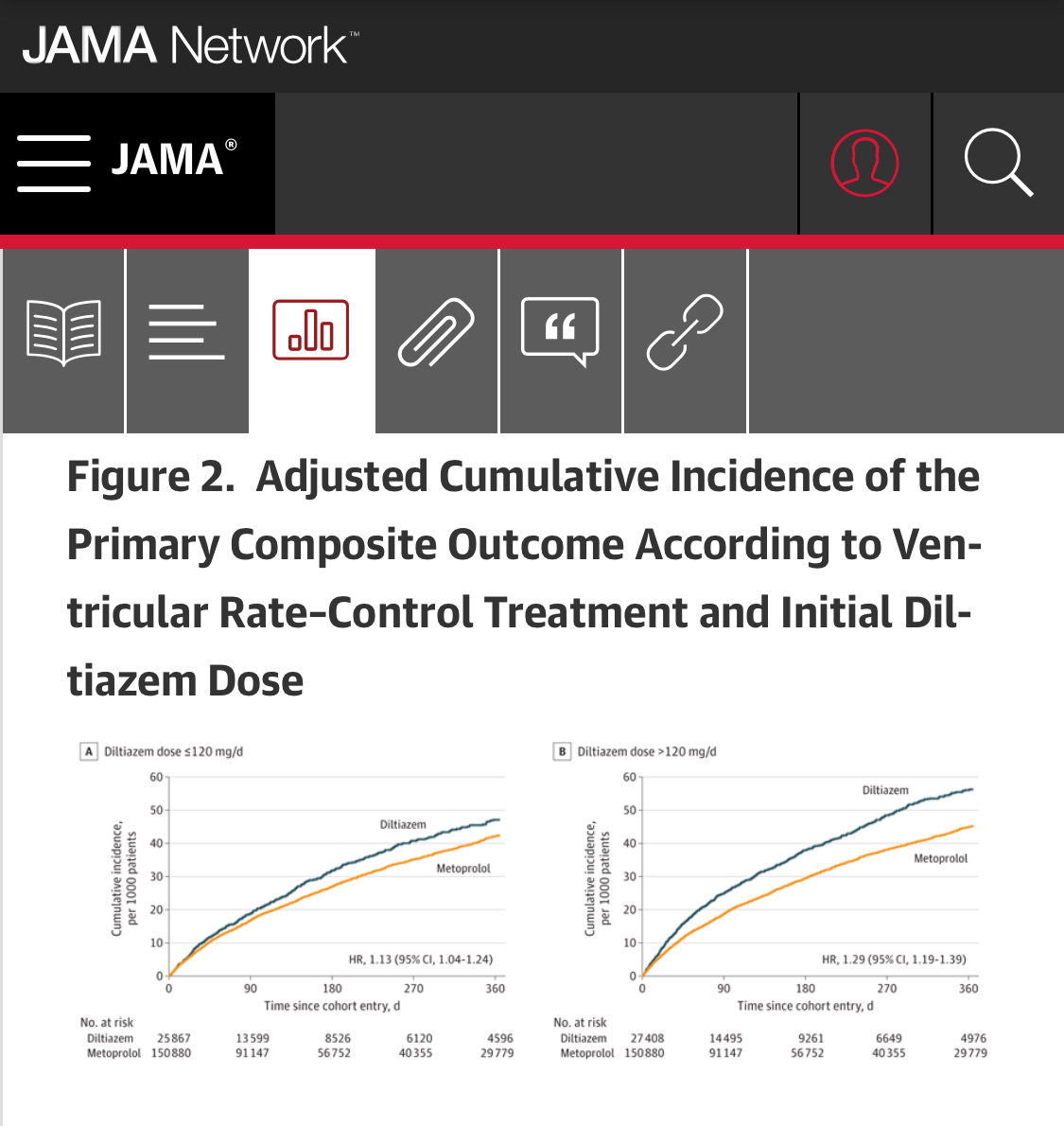A Country Doctor Reads: Interaction Between Common Atrial Fibrillation Medications
(Published online today)
The two problems with atrial fibrillation are tachycardia (rapid heart rate) and risk for blood clots forming in the small chambers of the heart. The second most common drug to prevent tachycardia has a theoretical risk of increasing the risk for serious bleeding from the most common blood thinner, Eliquis and theoretically even worse with Xarelto. Consequently, it has been said that perhaps the blood thinner dose should be decreased if diltiazem is used for rate control. But it has not been studied by how much the dose would have to be lowered in order to achieve just the right level of blood thinning.
Today, JAMA Network published a study that quantifies that risk.
For doses greater than 120 mg daily of diltiazem, that risk is particularly significant. It may not be commonly used for atrial fibrillation in its maximum dose of 420 mg, but interactions with such high doses have not been studied.
Xarelto, this study shows, does carry greater risk than Eliquis for serious bleeding when combined with diltiazem.
Here is one of the figures from the article:




